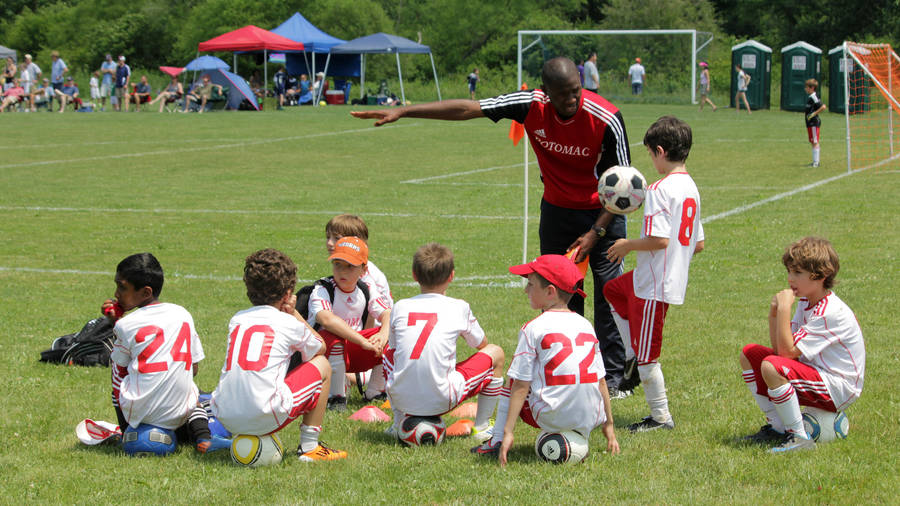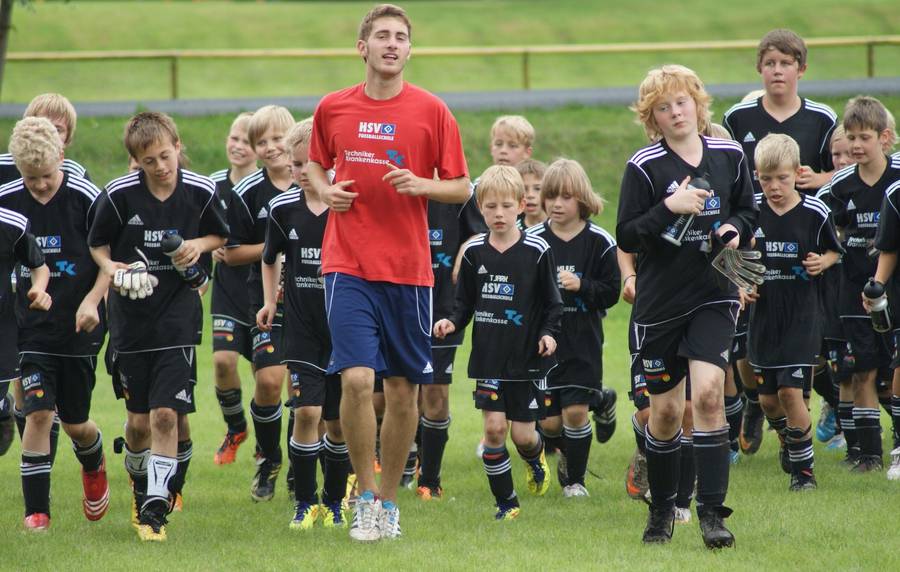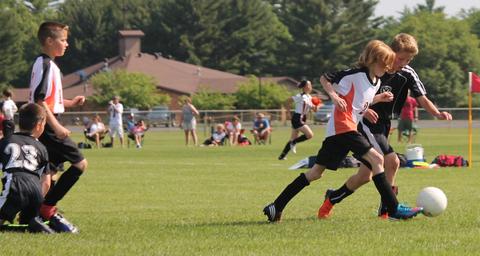
Football at its core is a game that thrives on passion, creativity, and joy. For young players in grassroots settings, it should be a space where enjoyment is paramount. It should be the peak of their week, an opportunity to release themselves from the pressures of being a young person in a sometimes difficult world. Yet in recent years, the creeping influence of external pressures has begun to overshadow this essential element. Whether it stems from well meaning but overenthusiastic parents, coaches intent on securing results or the rising competitiveness of youth leagues, the joy that draws children to the game can sometimes be pushed out. To safeguard the heart of grassroots football, it is crucial to refocus on why the game matters most…for the sheer fun it brings to those who play it.
Children often step onto a football pitch for the first time with an unfiltered enthusiasm that is pure and infectious. They run, kick and play simply because they love it. In these early days, football is not about trophies or league rankings but about the thrill of chasing the ball, scoring a goal or sharing a moment with teammates. It is this unadulterated love of the game that lays the foundation for a lifelong connection to football. However, as children grow and develop their skills, this emphasis can quickly shift. Without careful guidance, the natural joy they experience can be eroded by the weight of expectation, whether from adults or the structure of the game itself.
Recent research from the FA's youth development team reveals a troubling trend. 67% of children who stopped playing football before age 14 said that ‘pressure and lack of enjoyment’ were their primary reasons. This statistic should serve as a wake up call to everyone involved in grassroots football. When we lose sight of fun, we risk losing not just players but the very essence of what makes football the game it is.
The Norwegian Football Federation's radical approach offers an illuminating counterpoint. Their "Joy of Sport" initiative, implemented in 2011 and now adopted here, prohibited publishing scores or league tables for ages under 13. Initially met with resistance, the programme has since been credited with a 27% increase in youth player retention and, perhaps counterintuitively, improved technical skills among young players. A Norwegian Federation review stated, "When children play without fear, they try more things. They become more creative, more skilled, not despite the lack of competitive pressure but because of it."
The science behind fun in youth sports is compelling. A Sports psychologist’s study of youth football programmes across the UK found that teams emphasising enjoyment over competition showed 40% better skill retention and 60% higher participation rates after two years. It also showed that when children are having fun, they're actually in an optimal state for learning and development so more likely to improve their skills.
However, the pressure to produce results remains intense. The proliferation of private academies promising pathways to the big time has led some parents to view every match as a scouting opportunity. It’s easy to fall into the trap of focussing on the destination and forgetting about the journey.
One solution might lie in re-establishing what success looks like in youth football. Inclusion and enjoyment should trump all other factors. Elite players find their way to professional academies anyway where the priorities shift radically. The professional game's influence over grassroots cannot be ignored. When asked about their coaching style, many grassroots coaches reference theirfavourite Premier League manager such as Pep Guardiola. However, as former Premier League academy director Chris Powell points out, ‘What works for professionals isn't necessarily appropriate for children. We've forgotten that Ronaldo became Ronaldo by playing fun street football until his early teens, not by attending structured training sessions at age six.’
Traditional coaching methods often emphasise repetition and discipline. While these elements have their place, innovative coaches are finding ways to embed them within enjoyable activities. There are loads of good coaching resources out there that support making sessions fun.
It is also worth recognising that fun is not a one size fits all concept. For some players, enjoyment comes from scoring goals or showcasing their skills. For others, it lies in being part of a team, forging friendships and sharing memorable moments. Coaches and parents need to remain attuned to what makes the game enjoyable for each child, tailoring their approach to ensure that every player feels included and valued.
The impact extends beyond junior football and into adult life. Child development expert Professor James Harrison's research suggests that early experiences in team sports significantly influence adult attitudes toward physical activity and social interaction. ‘When we make sport fun we're not just developing better players, we're nurturing happier and more confident individuals who are more likely to stay active throughout their lives.’ This thread of physical activity is an important factor in improving health and happiness for life.
Technology, often seen as a competitor for children's attention and a barrier to participation in physical activity, can potentially be harnessed to enhance the fun aspects. Skills apps are out there providing ‘gameified’ skills challenges and many clubs use video analysis not to critique performance, but to create highlight reels celebrating moments of creativity and joy.
The Great British weather, traditionally a source of frustration in grassroots football, can reimagined as an opportunity for innovation. Rainy days become occasions for ‘splash football’ training sessions, while hot summer sessions transform into water balloon passing chains.
Pressure from parents is one reason the fun can get sapped out of the game and it’s vitally important that young players are allowed to play without this bearing down on them. As one parent from my club recently told me, "I used to shout instructions from the touchline until I realised my son would come home talking about everything except the football. Now I know that it’s the friendships he's making and the fun he's having as part of the team that makes him love the game."
Financial pressures add another dimension to the conversation. With some private academies charging premium rates, there's a risk that football becomes seen as an investment rather than a recreational activity. A parent shelling out big money for their child to have the best of everything may be consumed by the return on their investment and expect unrealistic results heaping more pressure down on their child.
Looking ahead, the challenge for grassroots football lies in protecting and promoting the joy of the game while still nurturing development. The evidence suggests what I’ve always believed that these goals are not mutually exclusive, but are in fact mutually reinforcing. When children enjoy their football, they play more often, take more risks and ultimately develop better skills.

















